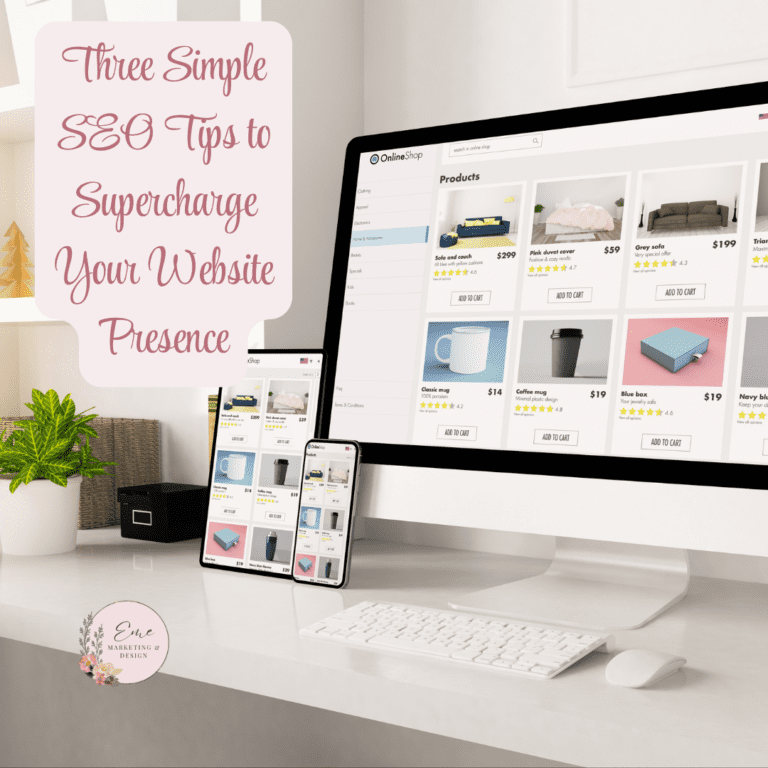
Having an online presence is vital for the success of any small business. A website serves as the digital storefront, representing your brand, products, and services to potential customers worldwide. However, with numerous website platforms available, choosing the right one for your small business can take time and effort. In this guide, we’ll explore the key factors to consider when selecting a website platform that aligns with your business goals, budget, and technical requirements.
Understanding Your Business Needs
Before diving into the sea of website platforms, it’s crucial to understand your business needs and objectives. Ask yourself:
What is the purpose of my website? Defining your website’s purpose will guide your platform selection, whether to showcase products, generate leads, provide information or sell online.
Who is my target audience? Understanding your target audience’s demographics, preferences, and behavior will help you tailor your website’s design and functionality to effectively meet their needs.
What features do I need? Make a list of essential features such as e-commerce functionality, blogging capabilities, appointment scheduling, etc., that your website requires to accomplish its goals.
Key Factors to Consider When Choosing A Website Platform
Ease of Use: As a small business owner, you want a website platform that is user-friendly and doesn’t require extensive technical expertise to manage. Look for platforms with intuitive drag-and-drop editors and straightforward interfaces.
Customization Options: Your website should reflect your brand identity. Choose a platform that offers ample customization options, including customizable templates, fonts, colors, and the ability to add your logo and branding elements.
Scalability: While your business may be small now, choosing a platform that can grow with your company is essential. Ensure the platform can accommodate increased traffic, additional features, and future expansions without significant disruptions.
Mobile Responsiveness: With most internet users accessing websites from mobile devices, having a mobile-responsive website is non-negotiable. Choose a platform that automatically optimizes your site for various screen sizes and devices.
SEO Features: A website’s visibility on search engines is crucial for attracting organic traffic. Look for platforms offering built-in SEO tools, such as customizable meta tags, clean URL structures, XML sitemaps and responsive design, to improve your site’s rankings.
Security: Protecting your website and customer data from cyber threats is paramount. Ensure the platform follows industry-standard security protocols, such as SSL encryption, regular security updates, and PCI compliance for e-commerce functionality.
Cost: As a small business owner, you need to consider the cost implications of your website platform. While some platforms offer free plans or low monthly fees, others may require upfront investment or additional fees for advanced features. Evaluate your budget constraints and choose a platform that provides the best value for your money.
Popular Website Platforms for Small Businesses
WordPress: Powering over 40% of the internet, WordPress is a highly versatile and customizable platform suitable for small businesses of all types. With thousands of themes and plugins available, you can easily create a tailored website. However, WordPress may require more technical know-how compared to other platforms.
Wix: Known for its beginner-friendly interface and drag-and-drop editor, Wix allows you to create stunning websites without any coding skills. It offers a variety of templates, built-in SEO tools, and e-commerce functionality, making it suitable for small businesses looking to establish an online presence quickly.
Shopify: If you’re primarily focused on selling products online, Shopify is an excellent choice. It’s a dedicated e-commerce platform offering everything you need to set up and manage an online store, including payment processing, inventory management, and marketing tools.
Squarespace: Squarespace is renowned for its visually appealing templates and seamless design experience. It’s ideal for small businesses in creative industries or those looking to showcase their portfolio or services in a visually engaging manner.
BigCommerce: Similar to Shopify, BigCommerce is a robust e-commerce platform that caters to businesses of all sizes. It offers advanced features such as multi-channel selling, abandoned cart recovery, and flexible shipping options, making it a preferred choice for growing online retailers.
Final Thoughts on Website Platforms
Choosing the right website platform for your small business is a critical decision that can significantly impact your online success. By understanding your business needs, considering key factors such as ease of use, customization options, scalability, and cost, and exploring popular website platforms tailored to small businesses, you can make an informed choice that aligns with your goals and objectives. Remember, your website is a digital presence and a powerful tool to attract customers, drive sales, and build your brand in the competitive online landscape. Choose wisely, and watch your small business thrive in the digital world.
Need expert guidance on your website?
We have two decades of website experience to help you maximize your marketing efforts and effectively reach your goals.




